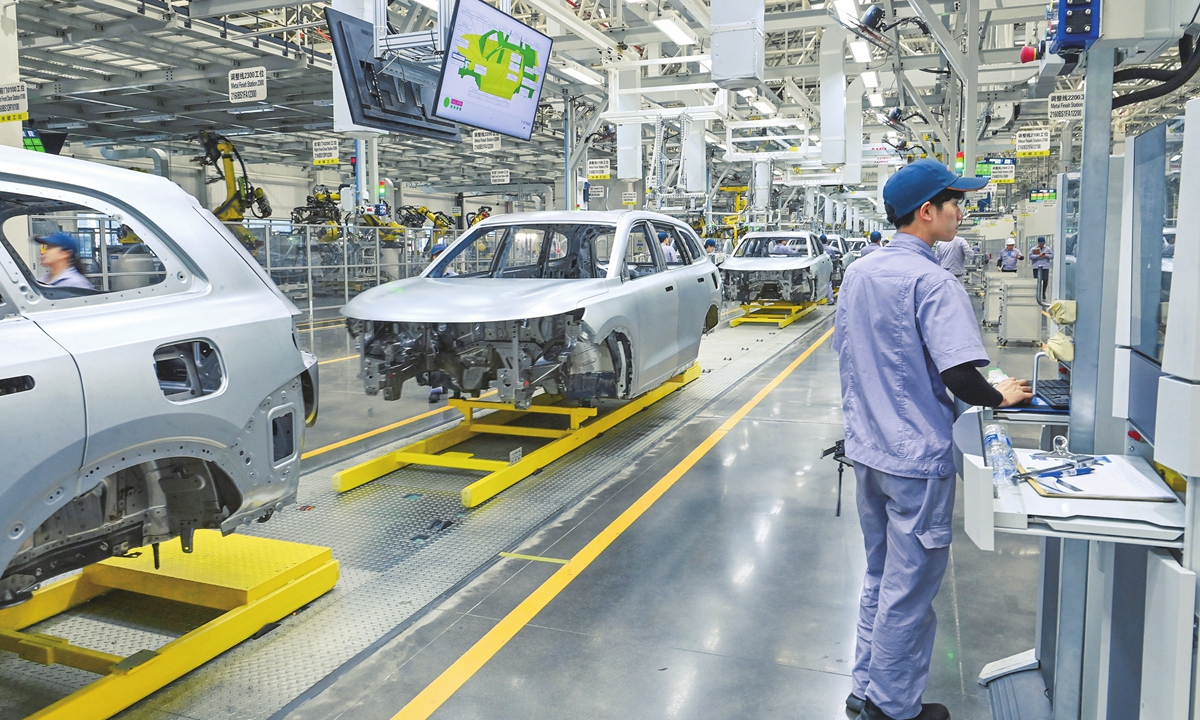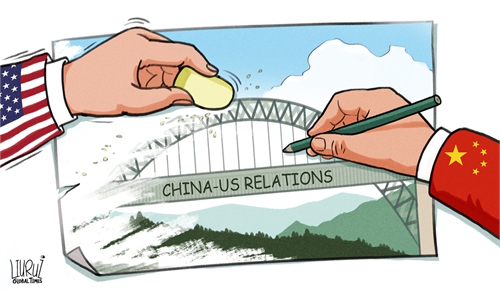US’ ‘overcapacity’ narrative conflicts with global demand for new energy, economic principles

The manufacturing line of a NEV factory in Southwest China's Chongqing Municipality Photo: VCG
US politicians and media outlets have recently been sensationalizing the issue of so-called overcapacity in China, specifically focusing on the growth of Chinese manufacturing in new industries represented by electric vehicles (EVs), lithium-ion batteries, and solar panels.In essence, the overcapacity narrative is driven by Western anxiety and fear over their weakness in international competition across new industries, and they are desperately trying to label China’s emerging industries as having overcapacity to curb their development.
First of all, China's investments in EVs, solar power, and new energy are driven by innovation and sustainability, in line with the global trend of accelerating the development of green industries and economic transformation. At the global level, the current high-quality capacity is not surplus, but rather insufficient. China's thriving new energy sector has the potential to assist other countries in achieving carbon-reduction goals and expediting an economy wide green transition.
The global demand for new energy products is ever increasing. According to the International Energy Agency's estimates, global sales of NEVs will reach 45 million units in 2030, 4.5 times the 2022 figure and three times the 2023 figure. Meanwhile, BloombergNEF said recently in a new report that global solar installations could reach 574 GW this year, 627 GW in 2025, and 880 GW in 2030. This means current production capacity is still far from meeting market demand, especially potential demand for new energy products throughout many developing countries.
At a time when there is no excess capacity for new energy products from the global perspective, it is groundless to accuse a country of overcapacity just because it exports more certain products. Every year, China buys large sum of soybean, oil, aircraft, and other commodities from the US, has it ever labeled the US as having overcapacity?
From a global perspective, global supply and demand are market driven. Different countries have strengths in specific industries, which are determined by their respective comparative advantages. As long as trade cooperation is mutually beneficial, there is no reason to simply identify someone as have excess capacity.
As for the claims targeting China’s massive low-priced exports, it is even more absurd. Reasonable prices are shaped by full competition in the market. The reason why China’s new energy products have strong competitiveness is because the related industries have accumulated technical advantages through long-term research and development, and have developed comprehensive competitive advantages by relying on the mass production capacity, supporting industrial chains, and comprehensive logistic network. Excess capacity will naturally be phased out of the market, but this is not the case with China. With its competitive new energy capacity that has the West concerned so much, China cannot be classified as having excess capacity.
US hype over the so-called overcapacity in China actually has complicated implications. On the one side, it wants to continue to block China in the economic and trade field to hinder the development of China’s relevant industries. On the other side, it is an excuse for introducing more protectionist measures to support its own domestic industries.
Also, because of high tariffs, Chinese EVs haven’t entered the US market in large scale. In addition, US statistics showed that in 2023, the total import value of trade goods from China to the US amounted to approximately $427.2 billion, behind Mexican exports of $475.6 billion to the US. Given the facts, there is certainly more geopolitical calculations in the US talking about overcapacity in China.
Finally, confrontation and argument are not effective ways to solve problems. With the world economy still in recovery, it is hoped that both sides can address each other's concerns in a fair and mutually beneficial manner so as to achieve a more favorable trade arrangement.
The article was compiled based on an interview with He Weiwen, a senior fellow from the Center for China and Globalization. bizopinion@globaltimes.com.cn

